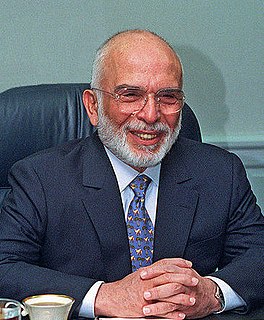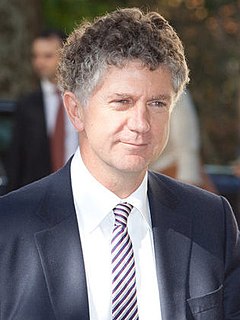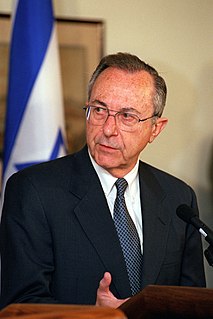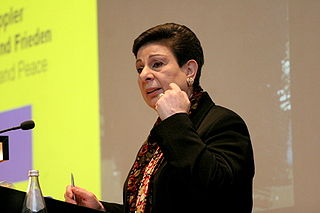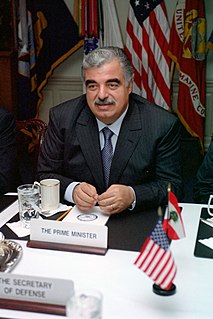A Quote by Hussein of Jordan
Jordan has a very important part in any Arab-Israeli peace process.
Related Quotes
Nobody ever predicted, a week before President Sadat came to Jerusalem in 1977, that his arrival would be the beginning of a peace process that would end up in an - unhappy - Israeli-Egyptian peace. We have seen peace with Egypt. We have seen peace with Jordan. We have seen the handshake between Rabin and Arafat - things are possible.
It was tricky [to write about Israelis], because everyone has an opinion about the Arab - Israeli conflict, and when I first started writing these stories, I was working for an Arab - Israeli human rights group. It was during the Second Intifada. It was this totally violent and intense time, and I think there's a part of me where I don't know how to write about that situation without getting my politics out of my messages, and that's something that was important for me not to do in this book.
I have been a long-time advocate for a just Arab-Israeli peace and for Palestinian refugees. Today, as you are aware, Turkey, Lebanon, and Jordan and Iraq are being overwhelmed by those fleeing the conflict in Syria, often with nothing but the clothes on their backs. Many are severely tortured - abused women and their traumatized children whose husbands, fathers, and brothers have been killed or permanently disabled.
Almost every peace process that has gone on between the Arab side and Israel, the United States has been somewhat isolated because most of the countries in the world, what they really want is to accept the Arab peace plan or so-called peace plan, which in its present form would lead to the destruction of Israel.
Jordan is many different things and there's many different parts of it. We don't ever really get to see a modern Arab city, a part of the Arab world where people are seemingly living their lives like everywhere else and also just a part of the Arab world that's surprisingly Americanized, with fast-food joints everywhere and shopping malls. Over the 30 years I've been traveling there, I really saw it grow and become modernized and much more Americanized in a way that surprised me as an Arab-American.
